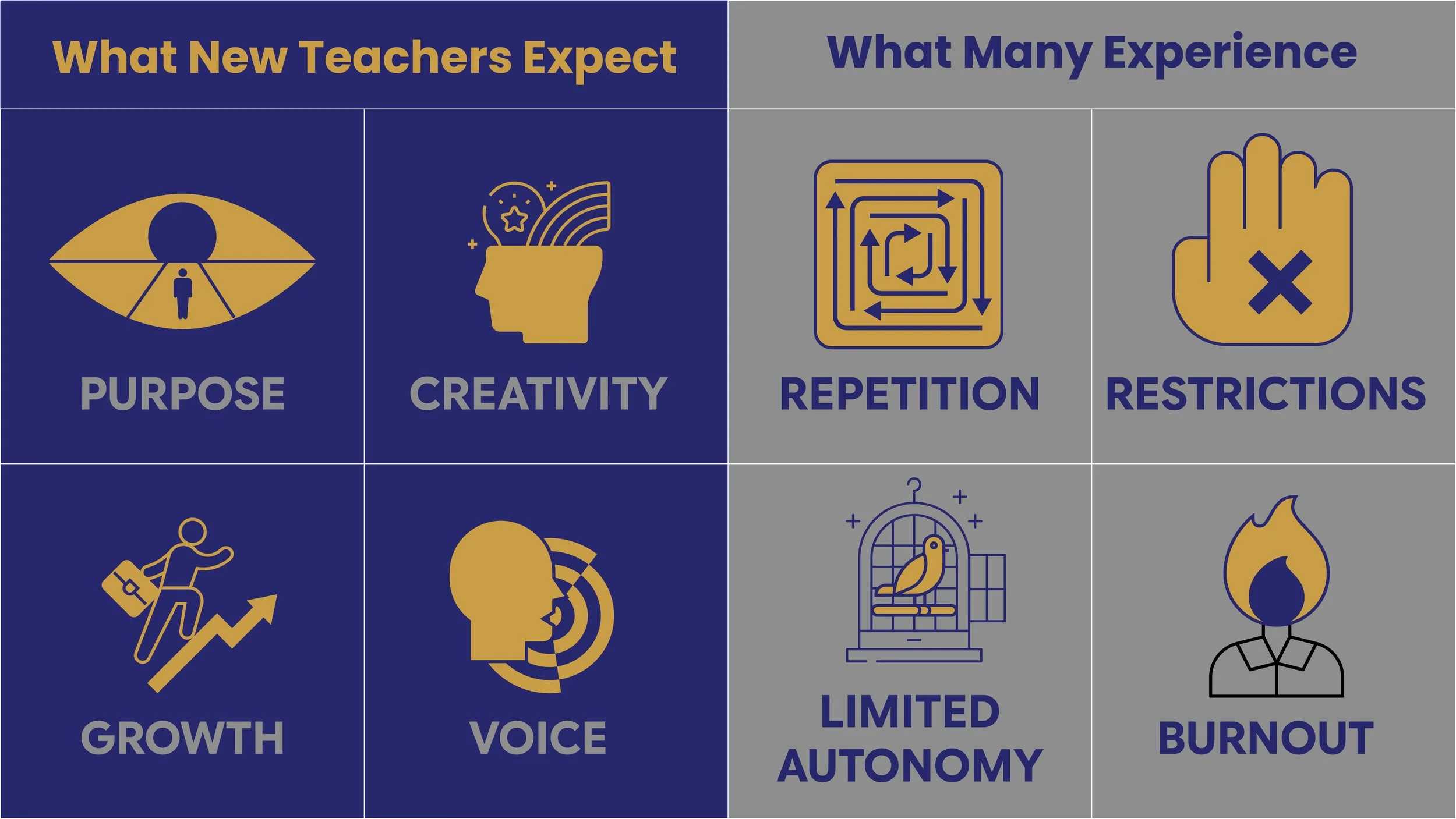By Deo MwanoIn today’s education system, a growing number of newer teachers are leaving the profession altogether after just two to four years in the classroom. This trend has serious implications for schools, students, and long-term workforce stability.At DMC, we regularly conduct temperature checks with teachers and school staff to better understand what is contributing to this challenge. Our process begins with conversations with school leadership—principals, assistant principals, and deans—who share the challenges they are facing related to teacher attrition, compensation, lack of collaboration, dissatisfaction, and unmet requests due to limited school capacity.As we gather this information, we intentionally look for nuances and school-specific insights, not just broad or commonly cited issues. From there, we facilitate high-level listening sessions with teachers across different grades, departments, and roles. These conversations inform the development of a customized, school-wide survey designed to capture a more comprehensive, macro-level view of teacher and staff experiences.It is critical that the survey questions reflect what we hear directly from the school community. We do not use pre-written questions from other partner schools, as those may not be relevant or appropriate. Throughout the survey period, we continue hosting additional listening sessions to engage as many educators as possible. Between open-ended survey responses and direct conversations, we gain deep insight into the good, the challenging, and the uncomfortable realities teachers are experiencing.What We Are Hearing from TeachersThrough this work, a clear pattern has emerged. Teachers who have been in the profession for 15–20 years or more often describe having accepted the realities of the system and developed coping strategies to navigate its constraints.In contrast, newer teachers—those right out of college or only a few years into teaching—are the most eager for change. They want more from their experience and feel frustrated by the status quo. Many describe feeling limited in their ability to be creative, innovate, or solve problems that are beyond their control.Teachers frequently share that the repetition of the same routines—daily, weekly, and monthly—diminishes their ability to apply what they learned in their preparation programs. Others express frustration about not being able to fully use the pedagogical and technical skills they studied due to rigid guidelines and instructional restrictions.Across many of our partner schools, these are often the teachers who tell us they are actively looking to leave their school—or the profession altogether—in search of opportunities that better align with their training, interests, and sense of purpose.For more data on this trend, see research from the National Center for Education Statistics on teacher turnover:https://nces.ed.gov/programs/coe/indicator/slc/teacher-turnoverLeadership Constraints and Systemic TensionsWhen we share these findings with school leadership, they are rarely surprised. Many leaders empathize deeply with their teachers but feel constrained by decisions made at other levels—such as district curriculum committees approved by school boards or limitations resulting from union negotiations.These systemic constraints often trickle down into classroom experiences for both teachers and students. Over time, teachers may experience stagnation and cynicism. As dissatisfaction grows, they begin to lose the sense of purpose that initially drew them to teaching.Reigniting Purpose to Improve RetentionHelping teachers maintain a sense of purpose is critical to improving retention, satisfaction, and overall school culture. Most teachers enter the profession fully aware that challenges will exist—they are not naïve. What they want is to feel understood, respected, and valued as professionals.Teachers want:A sense of accomplishmentFlexibility to innovate and contributeOpportunities to problem-solve and be creativeRecognition for their effortsLeaders who advocate for themSchool leaders must be intentional in how they show respect, consideration, and support. This includes consistently checking the temperature of staff morale, identifying patterns, and clearly communicating that teachers are being heard.Leaders can:Uplift teachers by recognizing their effortsCreate space for collaborative problem-solvingProvide autonomy where possibleAdvocate publicly for their staffSupport department leaders in honoring team contributionsFollow up on feedback—even when solutions are constrained by factors beyond their controlAt the core, teachers want to feel a sense of purpose and know that their leadership has their backs. When educators feel empowered to contribute meaningfully, they are far more likely to stay, grow, and continue investing in the students and communities they serve.For additional insight, see the EdSurge article by Andrew Kwok and Brendan Bartanen, What Motivates Teachers to Enter the Profession, which explores the underlying drivers that draw individuals into teaching.
The DMC Learning Success Team has over 30 years of combined experience in education, teaching in K-12 settings, and supporting learning success in college/university settings. Drawing from these experiences, DMC is committed to providing resources and tools related to our current work, which involves helping educational partners improve their culture through intentional and scalable solutions.






